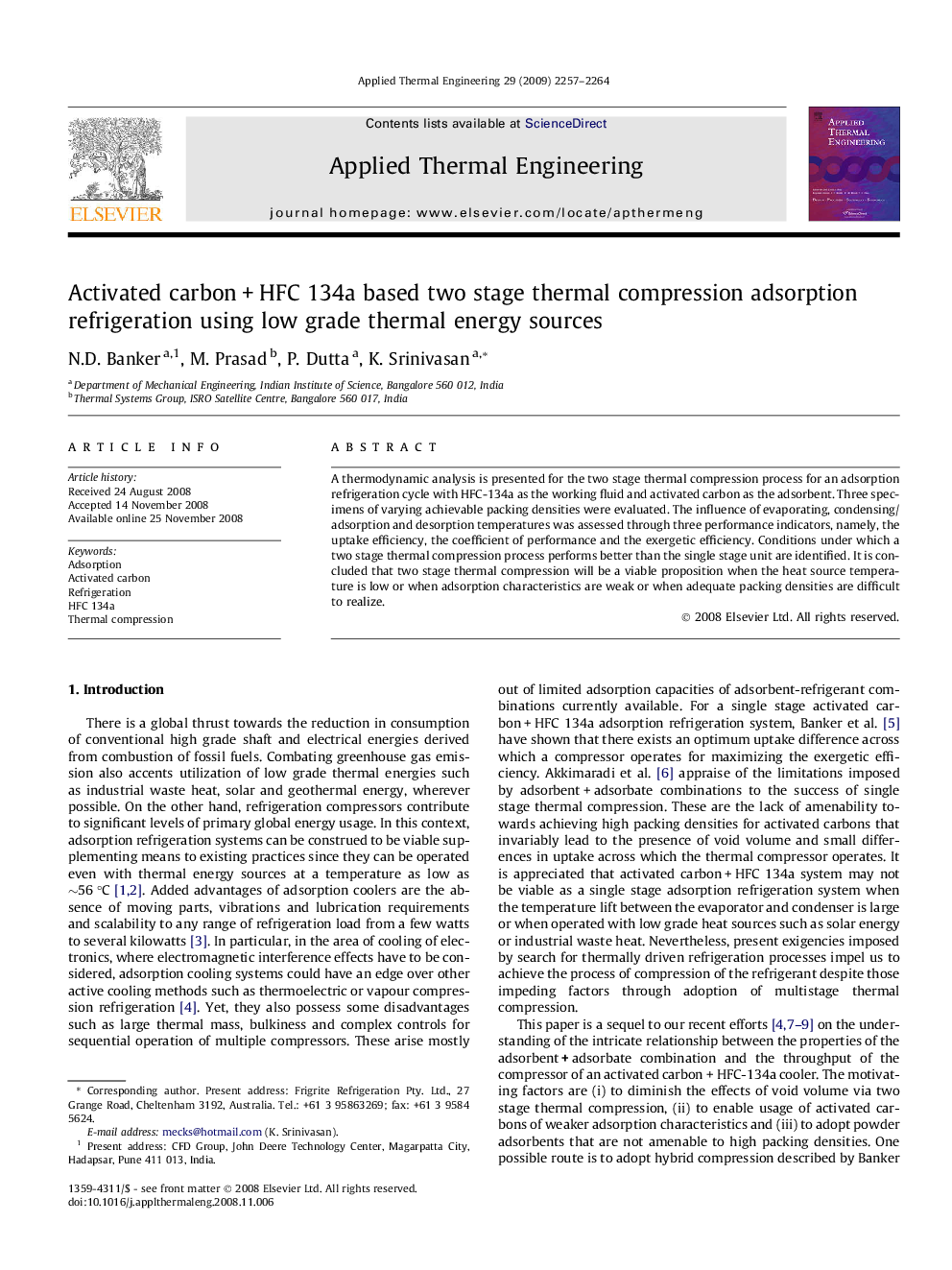| Article ID | Journal | Published Year | Pages | File Type |
|---|---|---|---|---|
| 648540 | Applied Thermal Engineering | 2009 | 8 Pages |
A thermodynamic analysis is presented for the two stage thermal compression process for an adsorption refrigeration cycle with HFC-134a as the working fluid and activated carbon as the adsorbent. Three specimens of varying achievable packing densities were evaluated. The influence of evaporating, condensing/adsorption and desorption temperatures was assessed through three performance indicators, namely, the uptake efficiency, the coefficient of performance and the exergetic efficiency. Conditions under which a two stage thermal compression process performs better than the single stage unit are identified. It is concluded that two stage thermal compression will be a viable proposition when the heat source temperature is low or when adsorption characteristics are weak or when adequate packing densities are difficult to realize.
